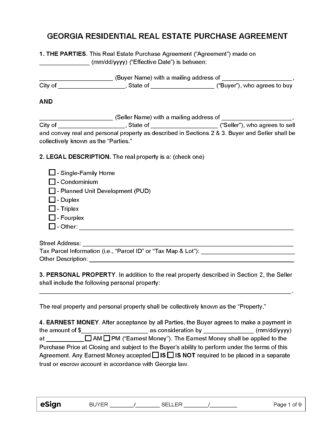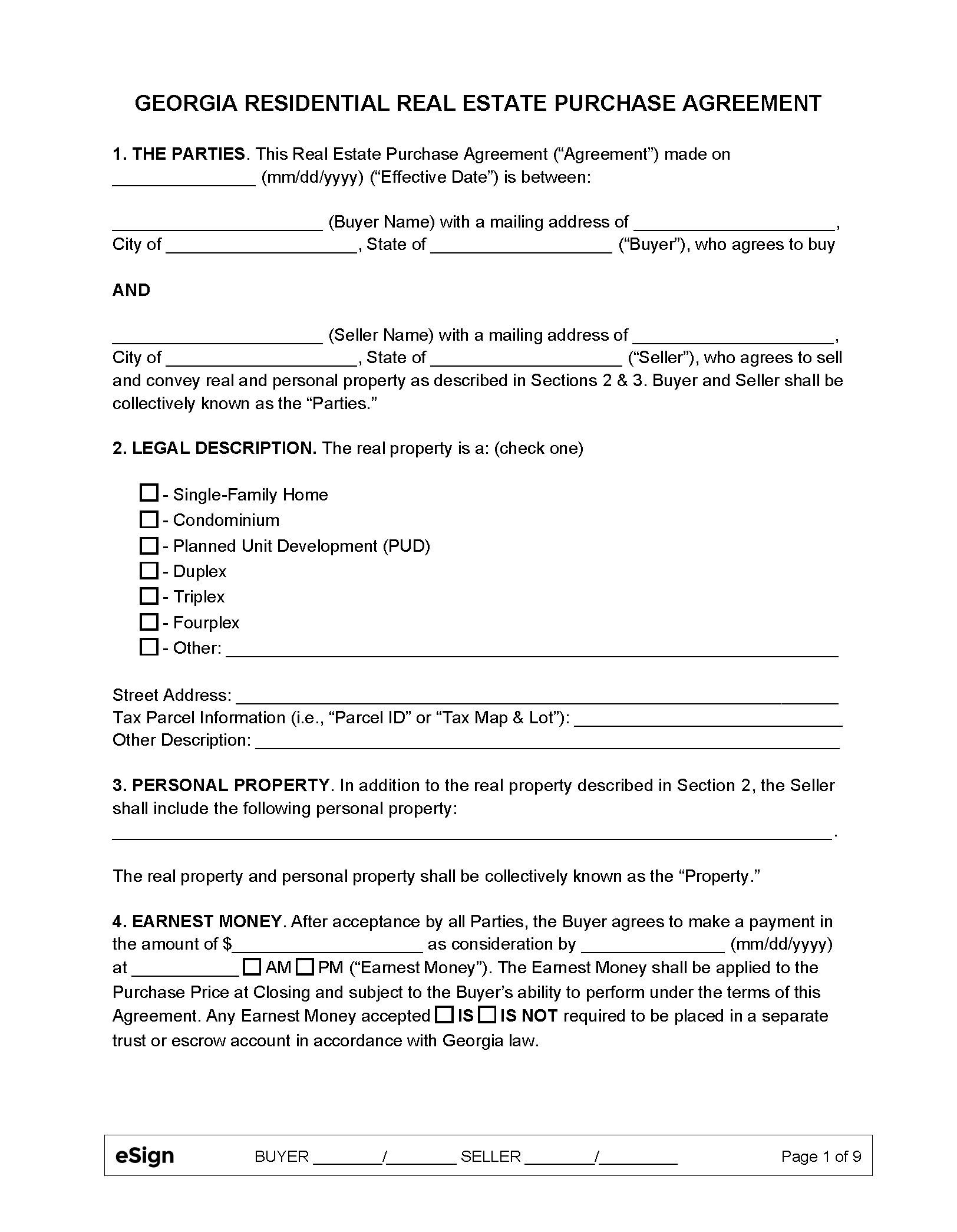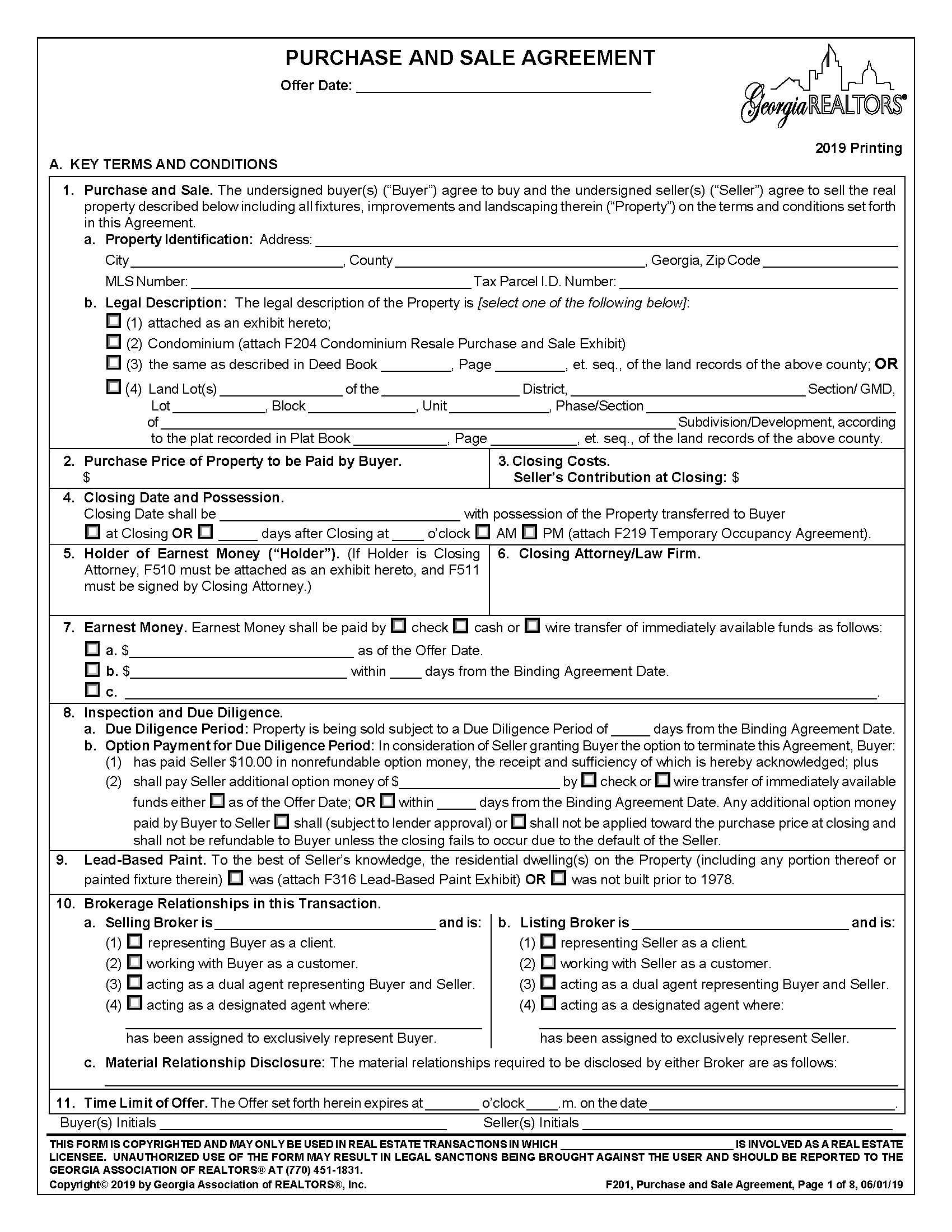Contents |
Realtor Version
Purchase and Sale Agreement – This is an official residential purchase and sale agreement that is provided by the Georgia Association of REALTORS® and authorized for use by licensed realtors only.
Download: PDF
Required Disclosures (2) |
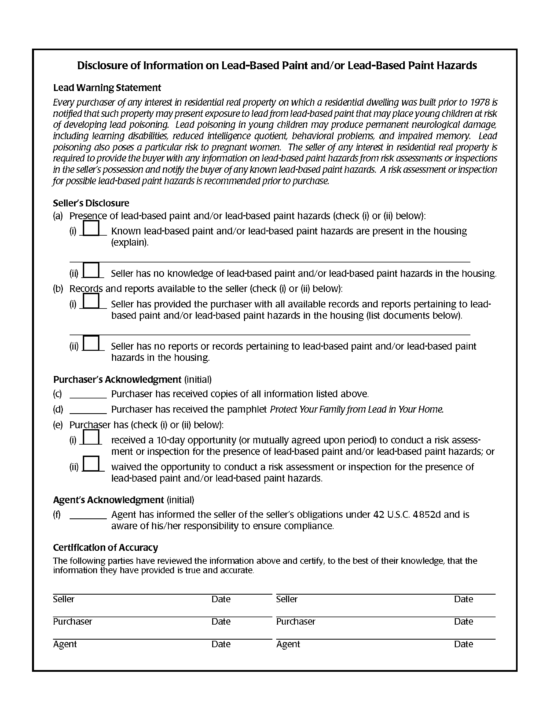 Lead-Based Paint – If the property being sold is a construction built pre-1978, the seller must disclose whether they know of any lead paint on the premises, and they must provide the buyer with a pamphlet containing information about the risks associated with the hazardous paint material. Lead-Based Paint – If the property being sold is a construction built pre-1978, the seller must disclose whether they know of any lead paint on the premises, and they must provide the buyer with a pamphlet containing information about the risks associated with the hazardous paint material.
Download: PDF |
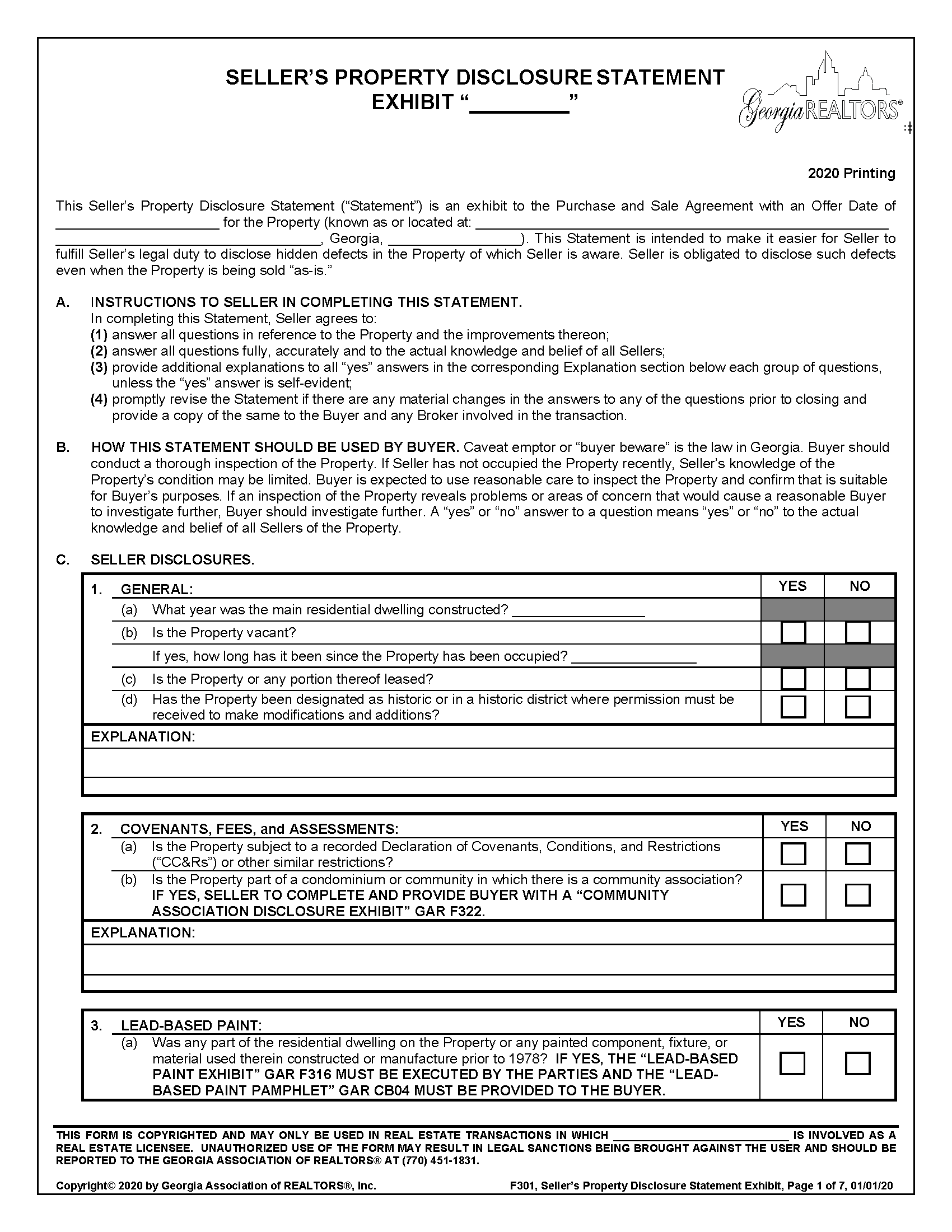 Property Disclosure Statement (Optional) – While not statutorily required, the seller should complete a property disclosure statement and deliver it to the buyer to report any known defects with the property. However, if a licensed broker is selling the property, the broker is required to disclose material defects to all parties with whom they work (§ 10-6A-5(b)). Property Disclosure Statement (Optional) – While not statutorily required, the seller should complete a property disclosure statement and deliver it to the buyer to report any known defects with the property. However, if a licensed broker is selling the property, the broker is required to disclose material defects to all parties with whom they work (§ 10-6A-5(b)).
Download: PDF |
Buyer Beware
Laws – Cendant Mobility Financial Corp. v. Asuamah, 285 Ga. 818 (2009)
As it relates to the sale of real property in Georgia, buyers should be advised that the state recognizes the rule of caveat emptor (“let the buyer beware”). In essence, this rule means the buyer is responsible for investigating the condition of a property before purchasing, and they cannot sue the seller for any defects discovered after the fact. However, this rule does not apply if: (1) the seller is the home builder, or (2) the seller fails to disclose their knowledge of serious defects that could not be discovered by reasonable inspection by the buyer.
